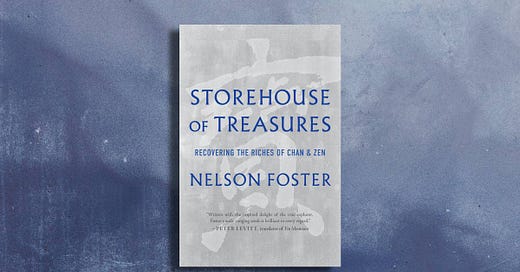In Storehouse of Treasures: Recovering the Riches of Chan Buddhism, Foster offers a profound exploration of Chan and Zen teachings, linking them to modern concerns about ecological sustainability, the human propensity for overreach, and the need for relinquishment in the face of environmental collapse. His book is a critical meditation on the intersection of spiritual practice, philosophy, and the urgent need for cultural and ecological transformation.
One of the central themes Foster explores is the Chan and Zen engagement with Daoist critiques of human intervention, particularly through the figure of Hundun, the primordial being in Daoist cosmology. Foster reflects on how Chan reimagines Hundun’s carefree, undifferentiated existence—free from the biological needs and burdens that plague human life—as a critique of the "hustle" we endure for clothes, food, and status. This critique resonates with the broader Daoist and Zen emphasis on wuwei—the principle of non-action or non-forcing. …
Keep reading with a 7-day free trial
Subscribe to The Gentle Law to keep reading this post and get 7 days of free access to the full post archives.




